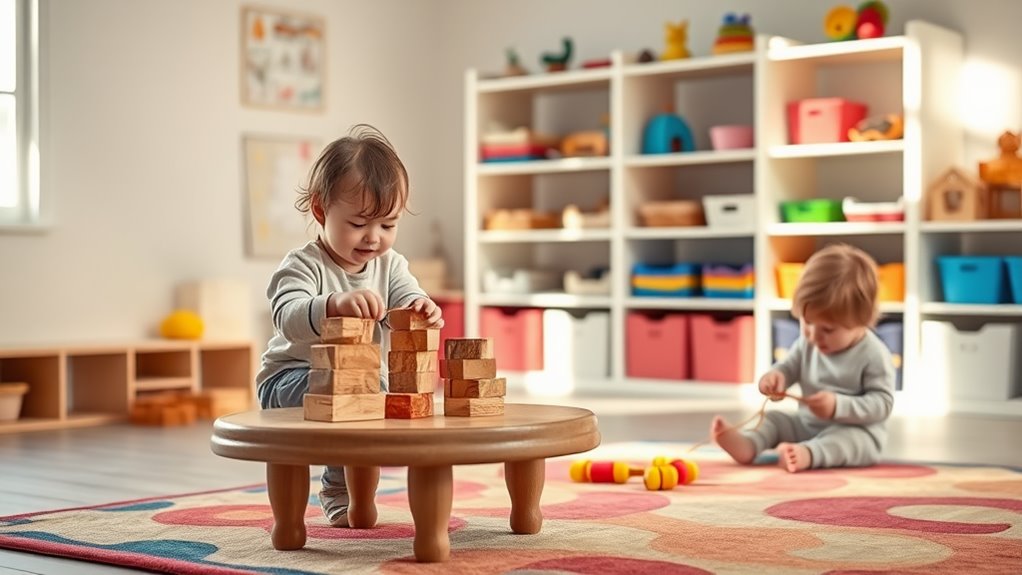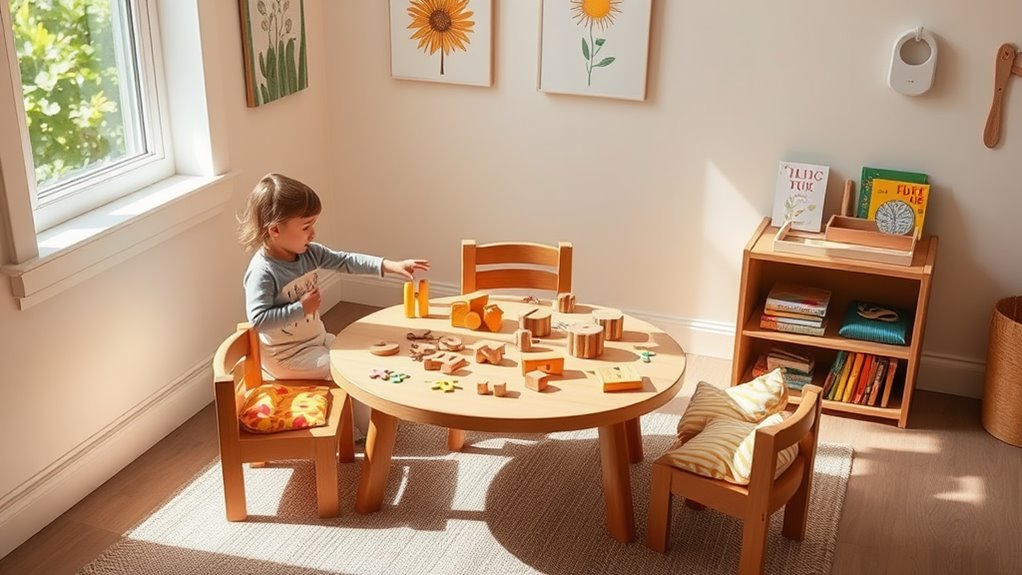Common Misconceptions About Montessori Parenting
You might think Montessori parenting is all about letting kids run wild with no guidance, but that’s a common misconception. In fact, it involves a structured environment where your active participation is essential. As you explore how this method fosters independence and collaboration between parents and educators, you may find that the reality is much more nuanced than you expected. What you uncover could redefine your understanding of effective parenting techniques and their impact on your child’s development.
Montessori Is Just Free Play
Many people mistakenly believe that Montessori education is merely about free play, but that’s a misunderstanding of its core principles. In reality, Montessori is a carefully designed approach that combines freedom with structure. While children do engage in independent play, it’s not random or aimless; it’s purposeful and guided. You’ll see them choosing activities that pique their interest, but these choices are rooted in a well-thought-out curriculum.
In a Montessori environment, the classroom is filled with engaging materials and activities that promote learning in areas like math, language, and science. You’ll notice that children are encouraged to explore these subjects at their own pace, fostering a love for learning rather than a race to finish tasks.
The role of the adult isn’t to direct play but to observe, guide, and provide support when needed. This balance of freedom and intentionality allows children to develop critical skills like problem-solving and self-discipline.
It Lacks Structure and Discipline
Some people think Montessori education lacks structure and discipline because it emphasizes freedom of choice. However, this couldn’t be further from the truth. In a Montessori environment, structure is built around respecting the child’s natural development, and discipline comes from instilling self-regulation and responsibility.
When you allow your child to choose their activities, they learn to make decisions and prioritize tasks. This choice fosters an intrinsic motivation to engage with their learning. Instead of imposing rigid rules, Montessori parenting encourages you to guide your child, helping them understand the consequences of their actions. This approach nurtures a sense of responsibility and self-discipline that lasts a lifetime.
In a Montessori setting, you’ll also find a carefully prepared environment that promotes order and focus. Materials are organized, and routines are established, which helps children feel secure and understand expectations.
Only for Young Children
Montessori education isn’t just for young children; it can benefit learners of all ages. While many people associate Montessori with preschool and kindergarten, the principles of this approach can be applied throughout one’s educational journey. You may be surprised to find that Montessori methods can effectively support adolescents and adults, too.
In a Montessori environment, the focus shifts from traditional teaching to fostering independence and critical thinking. This means that as your child grows, they can continue to thrive in settings that encourage exploration, creativity, and self-directed learning.
For instance, Montessori principles can be adapted to middle and high school curricula, where students are encouraged to pursue interests and develop skills at their own pace.
Moreover, the collaborative nature of Montessori classrooms fosters a sense of community. Older students often mentor younger ones, reinforcing their own learning while helping others.
This peer interaction creates a rich educational experience, making learning more engaging and meaningful. So, whether your child is in elementary school or preparing for college, Montessori methods remain relevant and beneficial, proving that the Montessori philosophy is truly for everyone, no matter their age.
Expensive and Exclusive Education
Affording a Montessori education often raises concerns about exclusivity and high costs. Many people assume that Montessori schools are only for the wealthy, but that’s not entirely true.
While some private Montessori schools can be pricey, many options exist that are more affordable. Public Montessori programs and co-op schools offer quality education without breaking the bank.
Additionally, many Montessori schools offer scholarships or sliding scale tuition based on family income. This approach makes it easier for families from various backgrounds to access this unique educational model.
You’ll find that the Montessori philosophy focuses on nurturing a child’s natural curiosity and love for learning, rather than simply delivering a standardized curriculum.
Moreover, consider that the value of a Montessori education lies in its emphasis on independence, critical thinking, and social skills. These skills can benefit your child throughout their life, making the investment worthwhile.
Parents Have No Role
In the domain of Montessori education, a common misconception is that parents play no role in their child’s learning journey. In reality, your involvement is essential to your child’s success and development. Montessori education encourages collaboration between parents and educators, creating a supportive environment that fosters growth.
As a parent, you can reinforce the values and principles of Montessori at home. This means providing a space that promotes independence, exploration, and self-directed learning. You can encourage your child to choose activities that interest them, allowing them to develop a sense of autonomy.
Moreover, your attitude towards learning sets the tone for your child. By demonstrating curiosity and a love for learning, you inspire them to explore new ideas and experiences. Communication is key, too! Discussing what they’re learning at school helps deepen their understanding while strengthening your bond.
Additionally, your partnership with teachers can enhance your child’s educational experience. Regularly engaging with their teachers allows you to support your child’s development effectively.




